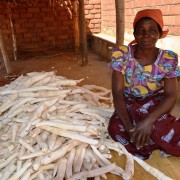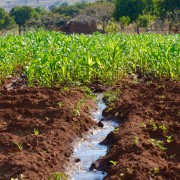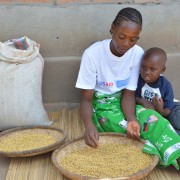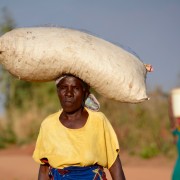
El Niño occurs when the Pacific Ocean warms and disrupts weather around the globe. In Malawi, where the rains were delayed in places by up to two months, the ongoing El Niño has resulted in a severe drought, and led to failed crops for many subsistence farmers. Due to its poverty levels, increasing population, and advanced environmental degradation, Malawi is especially vulnerable to climatic shocks and hard-won development gains are fragile in the face of climatic shocks such as those caused by El Niño.

Climate change affects countries across the globe. However, due to high population growth, rapid deforestation, and widespread soil erosion, Malawi’s agriculturally-based economy is particularly susceptible to climate change’s negative consequences.

Malawi has one of the lowest GDPs in the world and 37.1% of Malawian children are stunted from malnutrition. USAID believes that by integrating nutrition in value chains (INVC), it can help Malawi’s small businesses develop more effectively while also promoting nutrition throughout the country.

“I thank the experts at USAID’s Integrating Nutrition into Value Chains (INVC), whose mentorship and support has contributed to the growth of this business” – Chrissie Rice, Malawian business owner of Estrell Trading Company, one of Malawi’s most successful groundnut processing businesses.

Tuberculosis (TB) is a major public health problem in Malawi. Provisional results from the national TB prevalence survey completed in 2014 showed a higher TB prevalence of 1014/100,000 compared to the previous estimated prevalence of 373/100,000 by the World Health Organization (WHO).








Comment
Make a general inquiry or suggest an improvement.